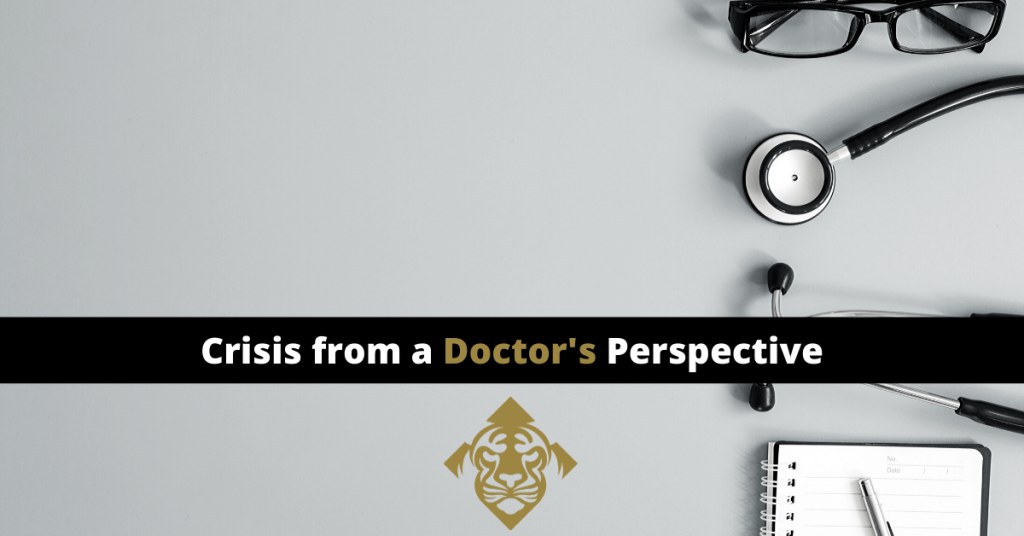Crisis from a Doctor’s Perspective

Guest blog authored by Dr. Diva Nagula Let me introduce myself: I am Dr. Diva Nagula, a board-certified physician, entrepreneur, author, and cancer survivor. Five years ago, when I was diagnosed with stage four non-Hodgkins lymphoma, I spiraled into a state of crisis personally, professionally, and spiritually. After my diagnosis, I analyzed my own response to this health crisis and documented techniques that worked for me to overcome cancer and change my life for the better. Here’s what I’ve learned over the years about crisis management as both a doctor and patient: The Physiological State of Crisis Crises vary by person, setting, and level of severity. Maybe your loved one passed away; your company is undergoing financial cuts and layoffs; a natural disaster struck in your region; or like in my case, you were diagnosed with cancer or another life-altering health condition. No matter what your particular crisis is, our body’s physiological response to crisis is quite similar: Rapid, shallow breathing Sweating Increased heart rate (heart pounding, or “beating out of your chest”) Slowed digestion (why you lose your appetite!) Muscle tension While natural and even helpful at times (e.g., the body’s “fight or flight” response), the physiological state of crisis is not sustainable long-term. Living in this state for long periods of time can have detrimental impacts on your psychological and physical health. For example, chronic stress often leads to mental health issues (e.g., depression, anxiety) and/or cardiovascular disease (e.g., heart disease, high blood pressure, heart attack, stroke). Fortunately, there are some simple life changes that we can make to alleviate the body’s physiological response to a crisis, and eschew the health impacts associated with chronic stress. Doctor’s Orders: Balance the Mind, Body, and Spirit During my medical training in integrative medicine, a blend of traditional and alternative medicine, I learned about the importance of balancing the mind, body, and spirit – a philosophy that ultimately led to my cancer remission and improved my overall well-being. When facing a crisis, health or otherwise, your ability to overcome it strongly depends on the health of your mind, body, and spirit. Fortunately, I was equipped with many tools to optimize my ability to overcome my crisis. Now, I’m excited for the opportunity to share these tips with others. Here are a few: Fuel your body When facing a crisis, you need to be on top of your game – this means eating foods that give you energy and avoiding foods that make you feel sluggish. Limit carbs and sugars, avoid processed foods, and take supplements as needed. Take care of your spirit When you are under significant stress, it is crucial to care for your mental and emotional health. I suggest seeing a therapist, surrounding yourself with friends and family, and finding some sense of spirituality. When in crisis, these tactics will help you make sound, rational decisions, rather than emotional ones. Tend to your mind Mindfulness, or non-judgmental moment-to-moment awareness, is one of the most important techniques to employ when you’re in crisis. Research has shown that mindfulness practices reduce the body’s physiological response to stress (e.g. increased blood pressure), decrease anxiety, depression, and exhaustion, and improve focus and memory. In my journey to remission, I used these techniques to heal my mind, body, and spirit. However, I found something even greater in the process: I found a new purpose in life. There is a reason cancer didn’t kill me, and that reason is to share my journey to better health with others. For more tips on crisis management from a health perspective, check out my new book “From Doctor to Patient” here: https://www.amazon.com/Doctor-Patient-Healing-Cancer-through-ebook/dp/B081PG4P87/ .
